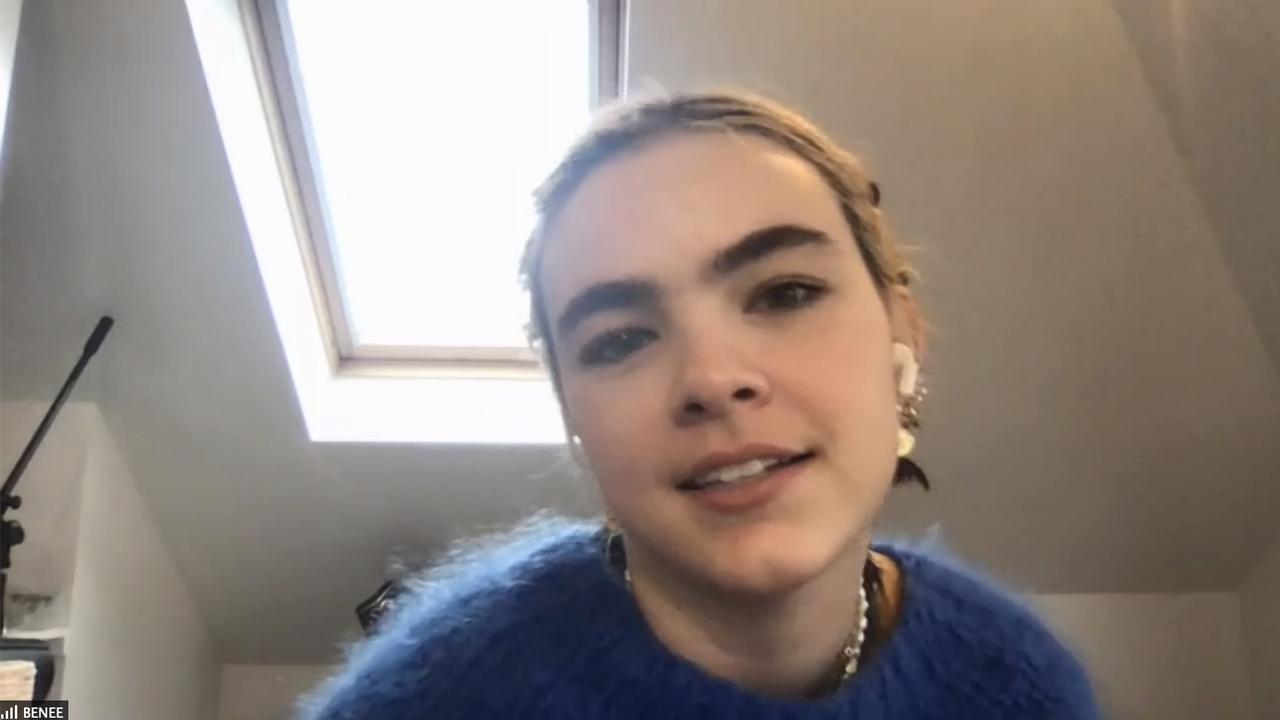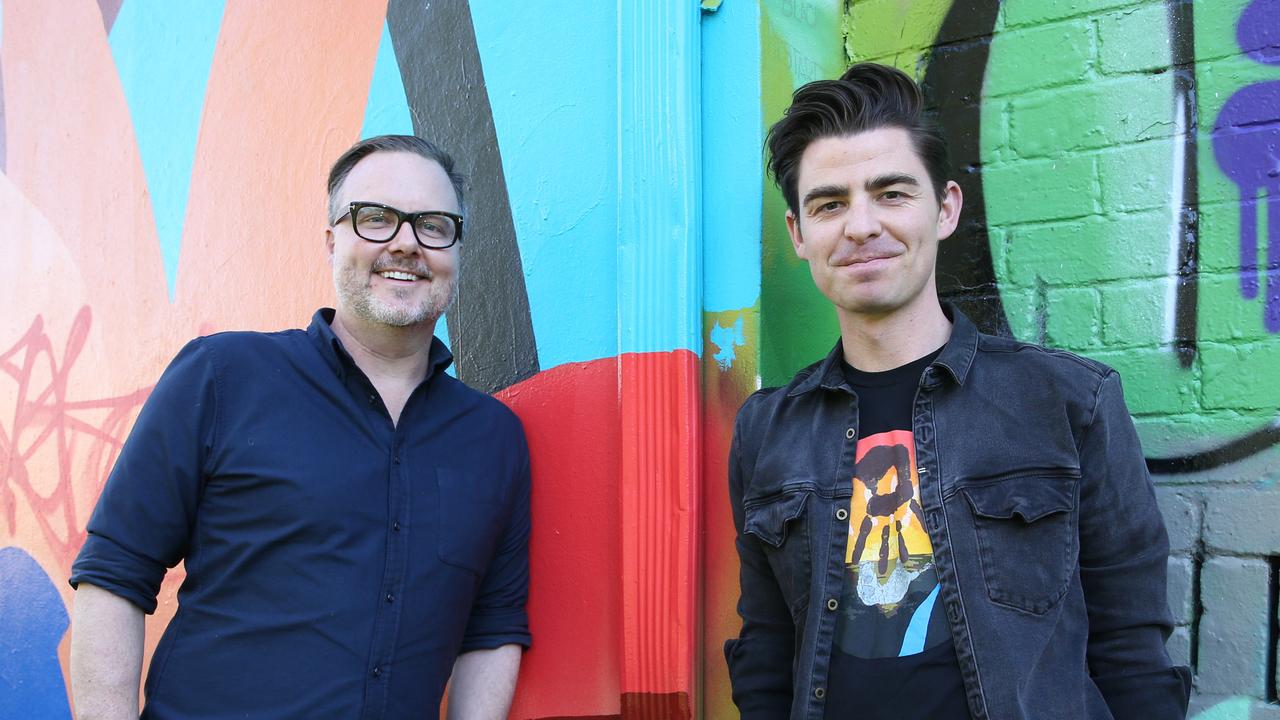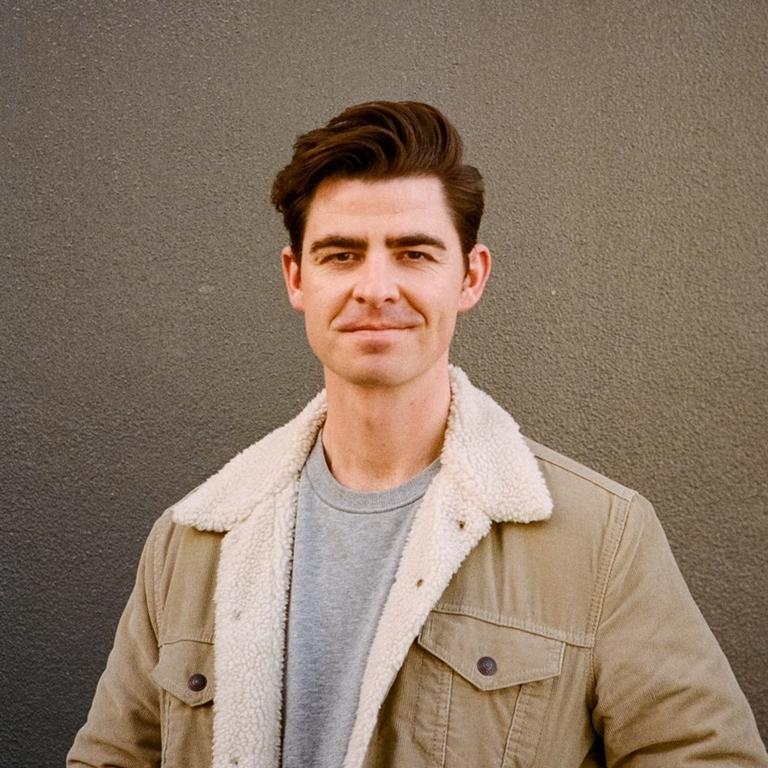Triple J boss Ollie Wards headed for TikTok on search for next Benee
A dance video propelled this singer to stardom during the coronavirus pandemic — and she didn’t even have anything to do with making the clip.
New Zealand singer-songwriter Stella Bennett didn’t know much about the viral video app that would shoot her to international prominence at the start of this year.
The 20-year-old, better known under her stage name Benee, had been pursuing her music career for several years, steadily gaining a following and even inking a deal with Republic Records under Universal.
But in February of this year, her song Supalonely became a smash hit following a 25-second TikTok video by popular creator Zoi Lerma, an 18-year-old from Los Angeles who’s built a following of more than 2.6 million through dance videos.
Her dance for Benee’s song is her most popular by far, racking up more than 35 million views since February.
“I kind of didn’t understand what was going on until people were like sending me the videos everyday,” Benee told news.com.au via Zoom.
“What I like about it though is it was organic,” she said of the song’s success.
“This girl found the song and made a little video to it and then all of her mates … I mean not her mates, all of these other randoms joined in.”

RELATED: ‘No choice’: Trump’s ban challenged
RELATED: ‘You shot me’: Star accuses rapper
Benee said she’s since had a few conversations with Zoi over Instagram to thank her for the original video.
She’s now putting the finishing touches on a new album that’s due out later this year.
The singer began her career as so many do these days: uploading songs to the streaming site Soundcloud, before landing a few songs in the Triple J Hottest 100 in 2018 and 2019.
But after some success on Triple J, the New Zealander’s career has surged to new heights through the viral video app TikTok.
The social media platform has just announced the appointment of a new local music director,
Ollie Wards.
Mr Wards began his career at the national youth broadcaster in 2010 as a producer on the Breakfast show, followed by a stint as program director before eventually becoming the head of the network in 2016.

RELATED: TikTok star’s power cut off after huge virus party
But from next Monday he’ll be working for TikTok, a new gig he’s “pretty stoked to get stuck into”.
“I’m really looking forward to picking up some local artists and trying to get them to blow up and go international,” he told news.com.au.
“That’s the job as I understand it, emphasise the amazing range of music we have from Australia and New Zealand.”

While he’s leaving radio for a social media platform, Mr Wards is confident the older medium will survive.
“I don’t think radio will ever not have a place in the music industry and the media diet of people more broadly, especially in Australia. [TikTok] will just be an addition to the diet, and make it a more balanced diet I guess.”
TikTok has proven hugely disruptive to the music industry, turning songs that would never have even charted into number one hits.
The app allows users to “remix” other people’s videos and make them their own, taking the audio of a video and using it in another.
This is part of the reason dance videos are so popular: creators can come up with a dance to a song that others can then attempt to imitate.
It also allows songs to go viral on the app, reaching large audiences that then translate into streams and sales.
Lil Nas X’s record-breaking hit Old Town Road and Roddy Ricch’s The Box both topped the Billboard Hot 100 charts after going viral on TikTok.
Prior to the release of his debut mixtape, Australian musician The Kid Laroi shrewdly got his music in 110 million more people’s ears by writing a song named after one of TikTok’s most popular creators Addison Rae (which she then dutifully featured in a video shared with her 56.5 million followers).
But as Justin Bieber learned earlier this year, attempts to “game” the app to have songs go viral don’t always play well with the audience, and according to Mr Wards there’s no one recipe for success on the app.
“It’s relatively unpredictable … it’s unique.
“Maybe they’ve got a strange sample or they’re pitched in a strange way or they’ve got lyrics that are often quite literal and you can act them out, or they have some sort of quirk to them that makes them a unique track that can hold itself in 15 or 60 second clips.”
Benee tries not to think about going viral too much.
“I don’t want to have that rub off on the music I’m making … it’s just making music I like and that I can feel good about and then if people want to dance to it and make a video and other people want to copy that dance that’s awesome.”



